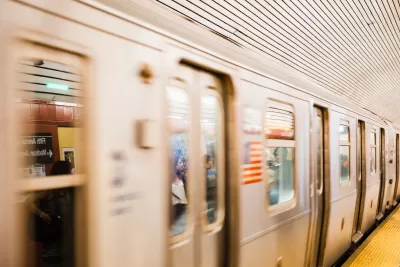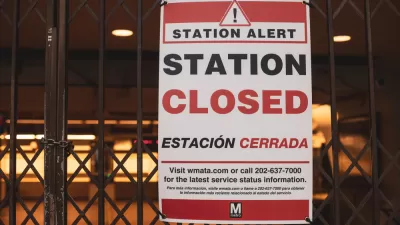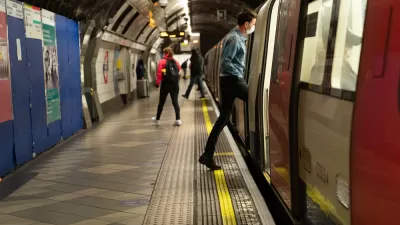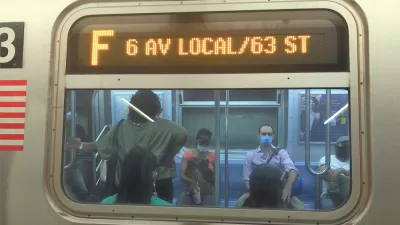As the Metropolitan Transportation Authority grapples with a $16 billion deficit, smashed train windows are adding to the cost.

A trend in subway window-smashing has cost the Metropolitan Transportation Authority about $300,000, twice the amount budgeted for these repairs through August, reports Mihir Zaveri.
Starting early on in the coronavirus lockdown, such vandalization has been sustained and even increased in severity, says Zaveri:
Transportation officials in New York City first began seeing broken windows on subway cars, mostly on the 2, 3 and 7 lines, in April. On one day in mid-July, nearly 50 windows across three 7 trains were smashed. Then this week, the problem seemed to have intensified again: about 60 windows on several 7 trains were found shattered with what officials said was a “blunt instrument."
During a time of widespread financial hardship and an increase in crime and violence, the MTA is contending with an economic difficulty of its own, a $16 billion deficit.
"Faced with the multibillion-dollar deficit, the agency is eyeing a number of cost-cutting measures that could drastically alter how the city runs its subways, including reducing service, cutting the transit work force, scrapping infrastructure improvements and taking on more debt," writes Zaveri.
FULL STORY: Smashed Windows on Subway Cars Have Cost the M.T.A. $300,000

Alabama: Trump Terminates Settlements for Black Communities Harmed By Raw Sewage
Trump deemed the landmark civil rights agreement “illegal DEI and environmental justice policy.”

Study: Maui’s Plan to Convert Vacation Rentals to Long-Term Housing Could Cause Nearly $1 Billion Economic Loss
The plan would reduce visitor accommodation by 25% resulting in 1,900 jobs lost.

Planetizen Federal Action Tracker
A weekly monitor of how Trump’s orders and actions are impacting planners and planning in America.

Wind Energy on the Rise Despite Federal Policy Reversal
The Trump administration is revoking federal support for renewable energy, but demand for new projects continues unabated.

Passengers Flock to Caltrain After Electrification
The new electric trains are running faster and more reliably, leading to strong ridership growth on the Bay Area rail system.

Texas Churches Rally Behind ‘Yes in God’s Back Yard’ Legislation
Religious leaders want the state to reduce zoning regulations to streamline leasing church-owned land to housing developers.
Urban Design for Planners 1: Software Tools
This six-course series explores essential urban design concepts using open source software and equips planners with the tools they need to participate fully in the urban design process.
Planning for Universal Design
Learn the tools for implementing Universal Design in planning regulations.
Caltrans
Smith Gee Studio
Institute for Housing and Urban Development Studies (IHS)
City of Grandview
Harvard GSD Executive Education
Toledo-Lucas County Plan Commissions
Salt Lake City
NYU Wagner Graduate School of Public Service





























